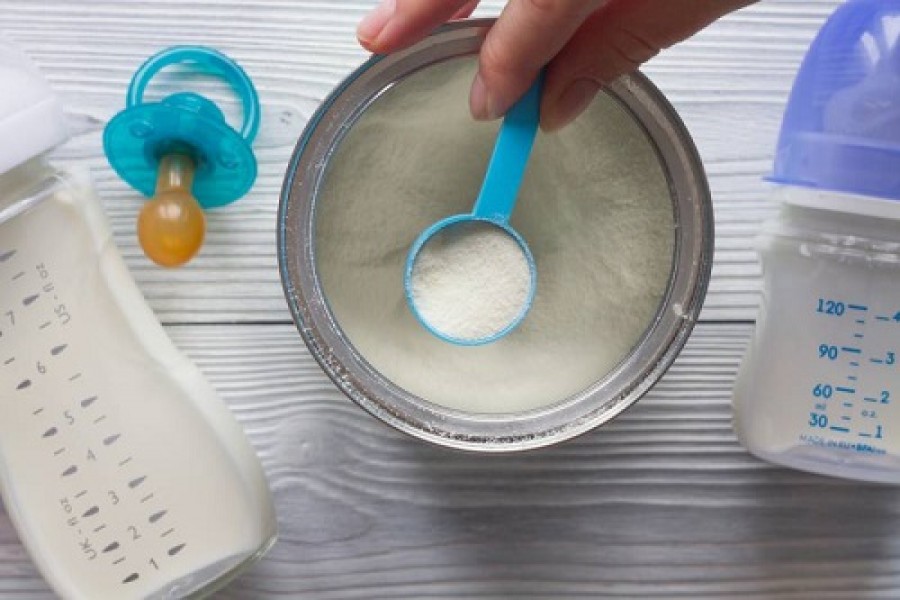15 Tips to survive the baby’s first cold and flu
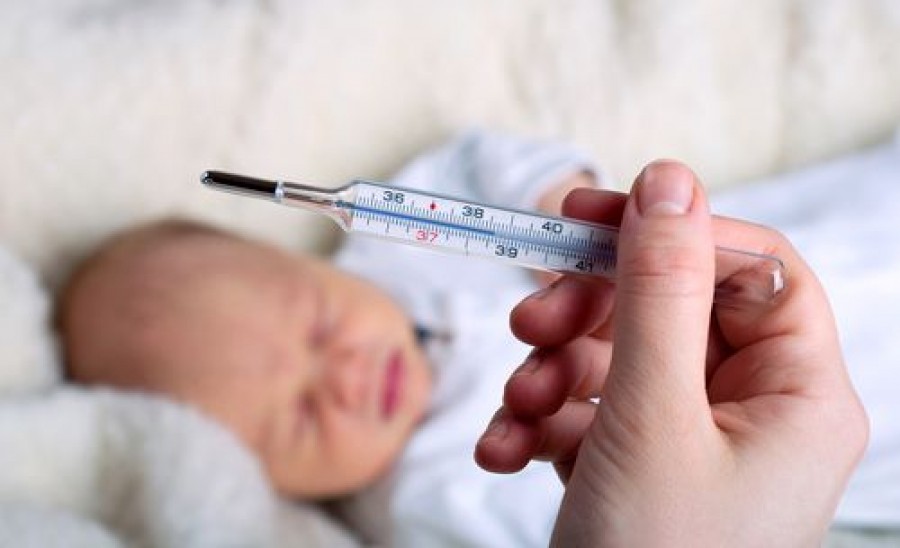
Bringing a new baby into the world means plenty of smiles and endless happiness. There are also many firsts that a baby gives the chance for new parents to enjoy. The first smile, the first tooth, the first words amongst many more.
However, there are also some other firsts that aren’t so lovely and welcomed. These include things like the first temper tantrum, the first messy poo, and the first cold and fever to navigate through.
The latter can be a worrisome one for new parents. Since babies can’t communicate with words how they are feeling if they have a cold or fever, the communication becomes cries and tears and sweat. This can be very distressing for new parents.
However, there are many nifty ways to handle a baby’s first cold and fever. By using some of these methods, hopefully the stress and anxiety will be alleviated somewhat.
1. The softer the tissue the better
Stick to delicate tissues to wipe your baby’s nose. There is bound to be a lot of snot and goop coming out of the nose during a cold or fever, but since babies have such sensitive skin, it is a very tender area.
Keep in mind that baby’s skin is so soft, especially in the first 6 months after birth, because it hasn’t had much exposure to external forces such as the weather. Since this is the first time the cold is affecting not only the immune system but also the skin, the face will be extra sensitive.
Investing in some quality, sensitive tissues will help make a big difference during the cold and flu season. Obviously, wiping the nose is going to be an automatic reflex on your part to clear baby’s face. However, using a delicate tissue will save on a lot of cries and tears from the baby while you do it.
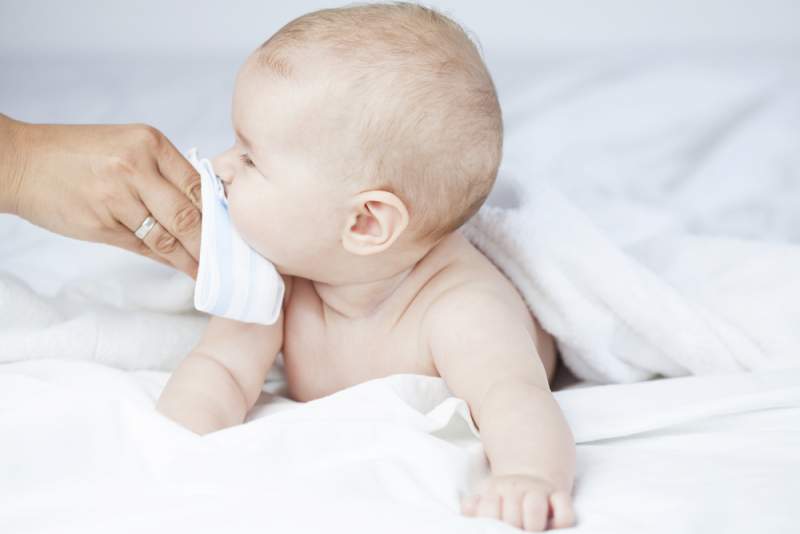
2. Take care of number one
Looking after yourself should still be a priority. While it is human nature to put a baby’s needs first, it is important to ask yourself just how well you’re going to be able to look after the baby if you too are sick.
Keeping yourself hydrated, eating well, and resting plenty will help you to do the best job at taking care of your baby. The last thing you need is to exhaust yourself and leave yourself open to germs and infection as well.
If you are on maternity leave, now is the time to make sure you rest up and make the most of staying in. There is no point pushing yourself or your baby to get out and about during the first cold. If the cold or fever strikes when you are back at work, don’t be afraid to tell your boss you may need some time off. When it comes to babies, people are generally more understanding.
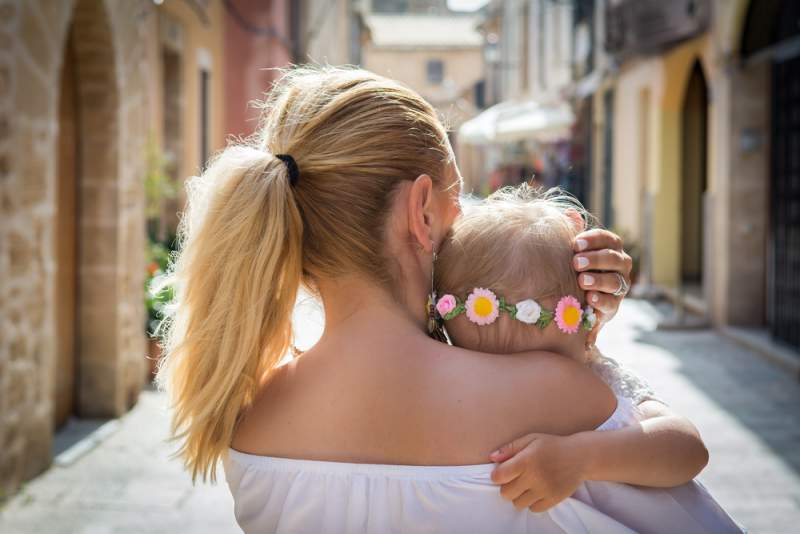
3. Get the temperature right
Invest in a reliable thermometer to save yourself a lot of stress and doubts. The most reliable way to tell if your baby is very sick from this cold or fever is to trust your instincts. However, getting some confirmation from technology is also useful.
Having a number to match to the heat and redness radiating from the baby’s cheeks and forehead, helps to keep things in perspective. A reliable thermometer that reads the temperature from the ear and presents a digital number is the best way to go. Thermometers that measure the temperature under the arm or the tongue are generally not as accurate. Paying upwards of $30 is worthwhile for this.
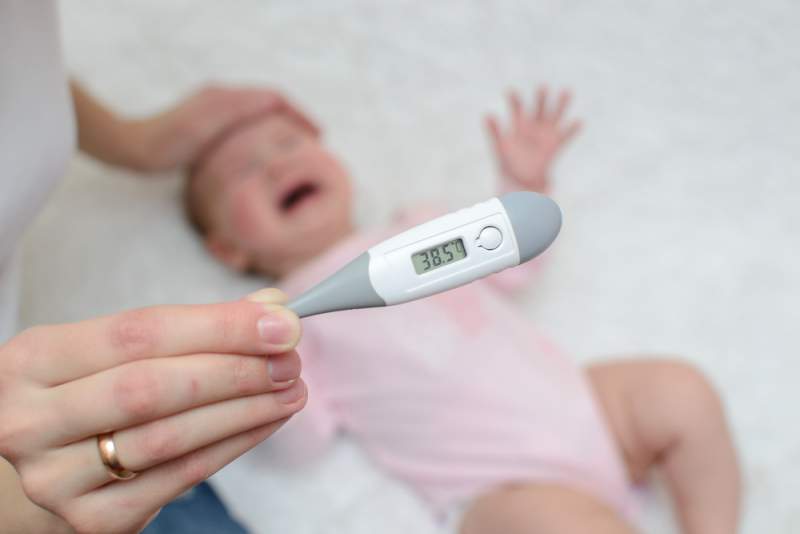
4. Drink plenty of water
Hydration is extremely important for you, especially if you are still breastfeeding. Keeping yourself hydrated will make sure the nutrients and energy you need are flowing around the body effectively.
In terms of breastfeeding, drinking enough water means that the breast milk supply will kept well nourished and easily accessible for the baby. The more H20 in your breast milk, the more the baby is getting too.
While the main source of nutrients for your baby is breast milk, don’t be afraid to give them a sippy cup of water to hang on to throughout the day. Having a constant supply of water will help to keep the body’s immune system strong while it is fighting the first cold or fever.
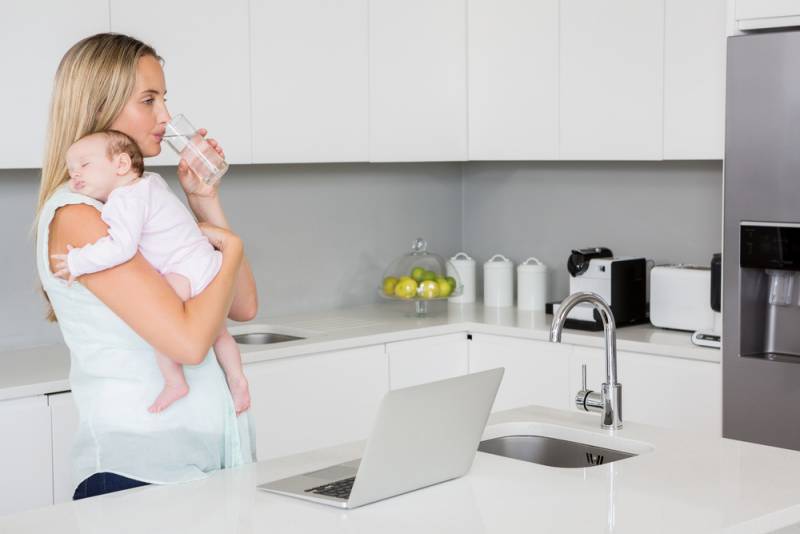
5. This is a growing moment
A cold isn’t a bad thing for your baby in terms of immune system development. It is really important to remember this. Even though it might seem like your baby is suffering and in pain, this experience is actually strengthening the foundations of the immune system
No matter how frustrating this time is, this first cold or fever is vital in providing your baby’s body with strength and protection against future germs and infections. It is actually crucial to evolution that the body is exposed to bad bacteria so that the good bacteria can gain strength and resistance against them. Just keep that in mind while you are cuddling your sick and sad baby!
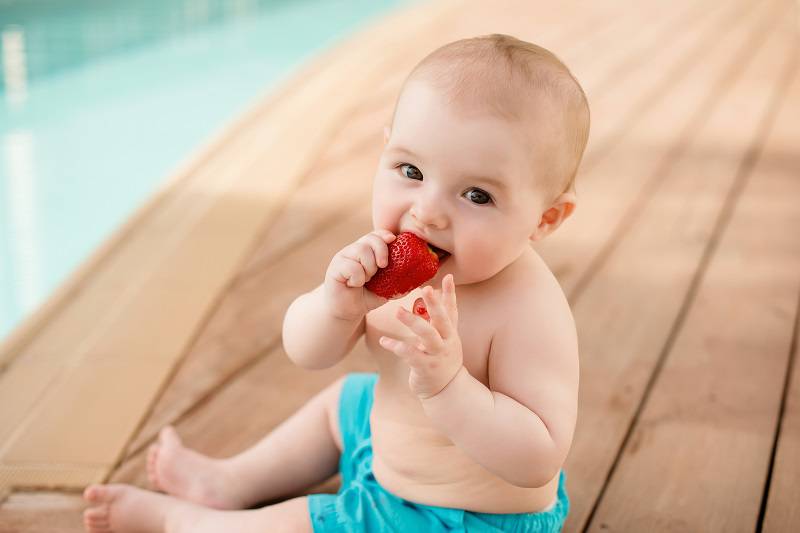
6. Be informed on dosages
Pay close attention to medical dosages and make sure you really understand the amounts that need to be given. With a cold and fever in babies, the temperature and discomfort levels are most likely to spike around late afternoon and early evening. This is the time when doctors are probably unavailable.
It is a good idea to keep some pain relief at home, but just make sure you have a really sound understanding of how each one works. Make sure you have a chat with your doctor before the baby is born and obtain a dosage chart to keep with your medicines at home. If you don’t have this information, or feel it is an emergency, taking your baby to the hospital ED is the best option, or a 24 hour emergency clinic.
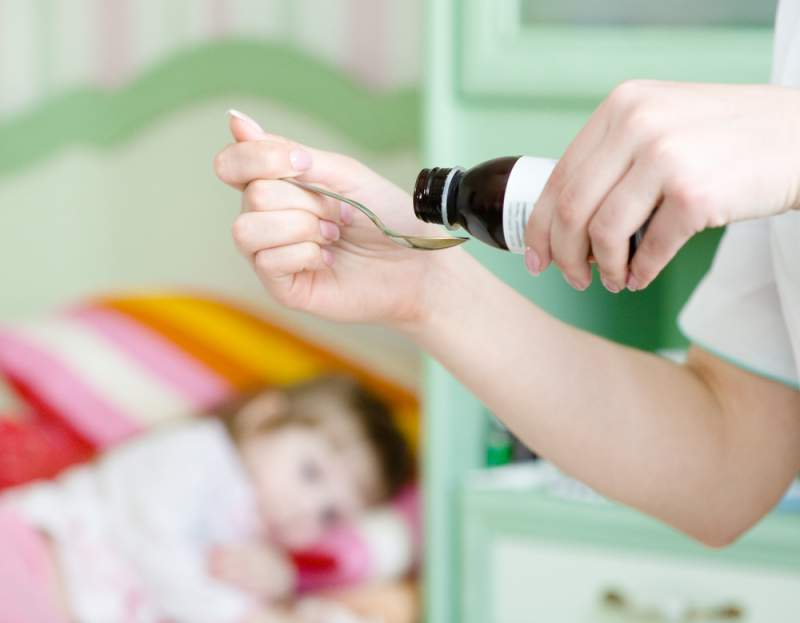
7. Mum has the best medicine
Sometimes a hug is all your baby needs. There is something extremely powerful about a mother’s hug in the way that it can calm a baby down while in distress. This is one of the best medicines to get your baby through cold and flu season.
This is why it is important for you to keep calm and not get angry or mad at your crying baby. While it can be difficult to control your own emotions when you too are tired and exhausted, providing your baby with loving calm and warming support will help them fight through their cold or fever. You have more influence over how quickly your baby recovers than you may realise at first.
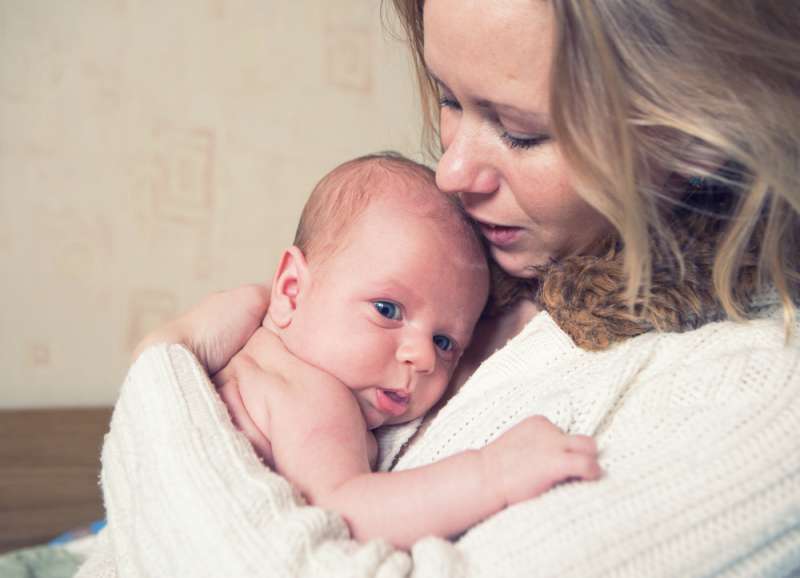
8. Patience before exhaustion
Having patience with your baby’s moods is another thing to keep in mind. Since babies can’t express with words what they are thinking or feeling, and since they don’t understand why their body is reacting in this way, they tend to cry and get very moody.
This can be frustrating as a parent, but you have to remember this isn’t the baby’s fault. While it is hard to maintain composure while dealing with sleepless nights and a restless baby through the day, just remember that this state isn’t going to last forever for the baby.
When the days are particularly hard, it can be worth calling on your partner or one close friend to watch the baby for a few hours while you go out, get a coffee, and recharge. The last thing you and your baby need is to feel housebound and frustrated together.

9. A warm soothing bath helps
Bathing the baby is a really effective way to reduce the severity of a fever. The key to this is to start off by filling a bath with really hot, boiling water. Then, as the water cools off, keep the bathroom door and windows closed so that steam fills the room.
When the water is at a pleasant, tepid temperature, take the baby in there and stay in there as long as possible. The steam will help clear out the sinuses and the water is soothing on the skin. As well as this, having a bath can be fun and enjoyable for the baby too. Add some music and floating toys and you will both forget that the baby has a cold! This is also a great way to pass the time during the cold or fever. Obviously, get the baby out before it gets too chilly! Read more on cleaning your baby properly here.
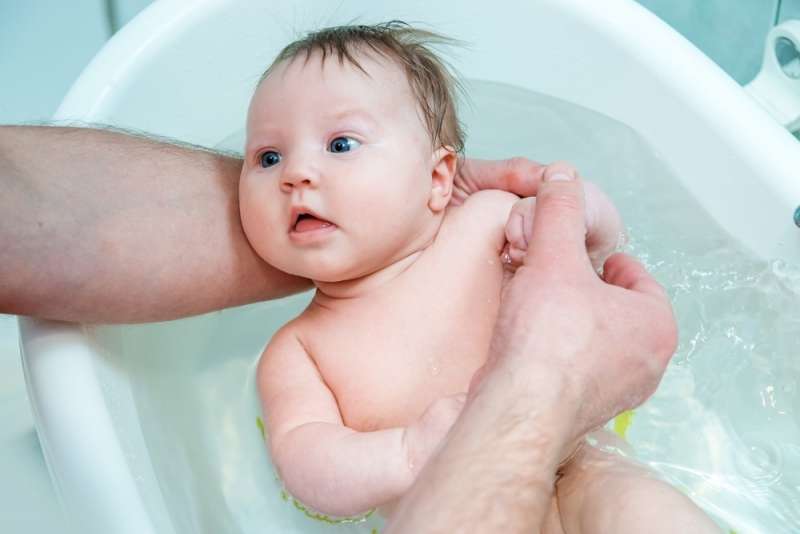
10. Consider other methods of relief
Using a nasal aspirator can be a good way to relieve some discomfort for a baby. This device is essentially a ‘snot sucker’ in which you place a tube in the baby’s nose and you suck from the other end. The snot comes out, but there is a catchment point so that it stops halfway at the tube.
This is a very effective and quick way to relieve congestion for your baby. Although it is a bit gross, it can be worth it to relieve some of the cries and tears for your baby.

11. Cleanse the air
A humidifier and vaporizer are also very effective to ease the symptoms of a cold. The best thing about these is that they don’t require any skin contact with the baby, yet they work very well.
Basically, there are two ways to use these. A plug in vaporizer releases menthol scent into the room. This has a positive effect on the nasal passages and can help clear the sinuses. A humidifier takes away the humidity from the air, which in turn makes it easier to breath. You can use different essential oils, too, such as lavender or mint, which make the air both easier to breath and smell delightful.
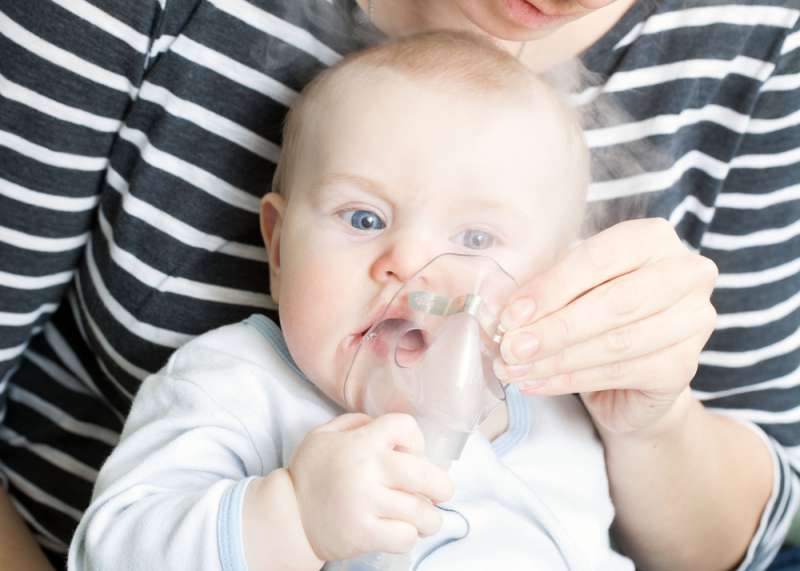
12. Keep sanitary
Practicing good hygiene will help speed up the recovery. This goes for everyone in the household. Keeping things clean and tidy will help keep germs at bay. Washing hands thoroughly with warm, soapy water is highly important.
Make sure to wash your own hands as well as that of the baby. Even though they are sick, they are still prone to reaching and touching everything, collecting more bacteria as they go!
Washing down bench spaces before and after food preparation for the baby is also a good idea. The last thing you want is more bad bacteria making its way into the baby’s body.
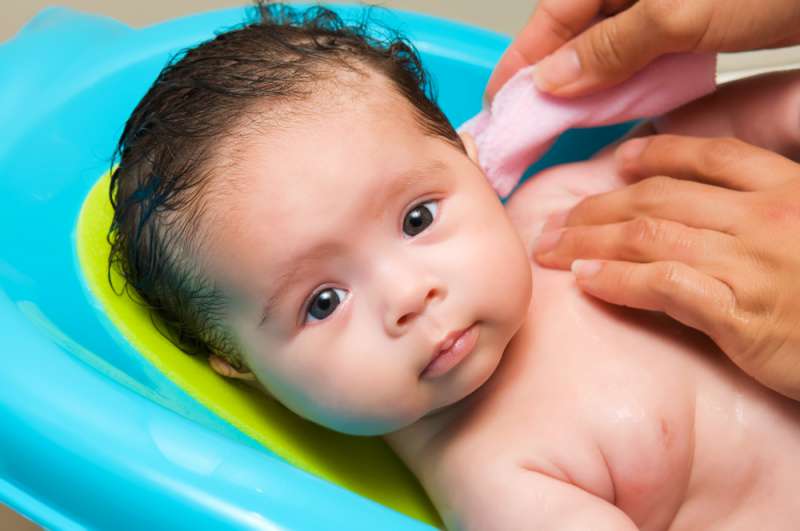
13. Use a dummy wisely
Stick to just one dummy for the baby while they have a cold. Having a dummy can help to relax the baby and relieve anxiety during cold and flu season. However, this dummy is very susceptible to germs since it is in the mouth region.
Therefore, using the same one and thoroughly washing and disinfecting it after each use is the best way to go. Otherwise, disposing off a dummy each time they are used is going to get wasteful and expensive.However, whether using or not using dummies for babies is a different discussion altogether. Read more on the pros and cons of using dummies for babies here.

14. Stay low key
Keep socialisation down during this cold and fever period. While it is nice to have support from friends and family at difficult times, it is better to do this over the phone rather than in person. Having too many visitors over can increase the exposure to new germs, as well as cause stress and anxiety for the baby.
Likewise, heading out to cafes and shopping centres is better left for healthier times ahead. Staying at home and making the most of some resting period is the best option for you and the baby during this time.
That being said, make sure you don’t isolate yourself completely. It is still important to maintain contact with people and see friends and family intermittently. The last thing you should do is socially barricade yourself in with a sick baby. Remember, this is one of the wonders of social media!
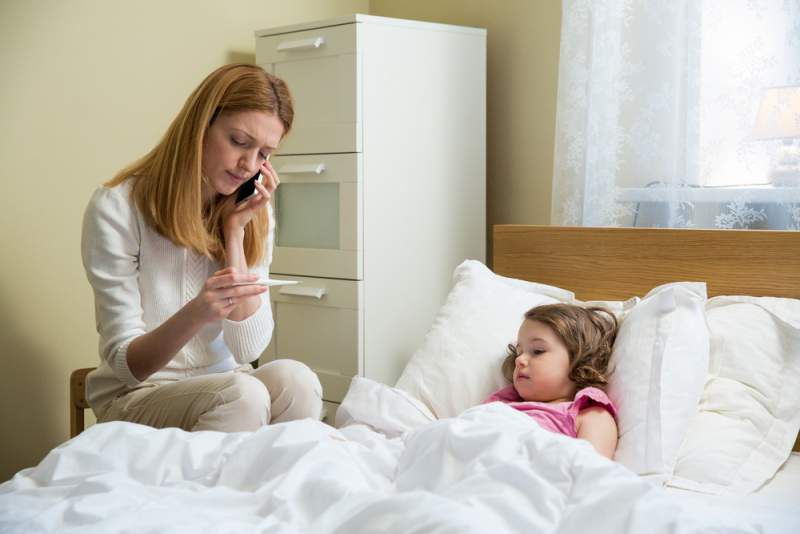
15. Only see the doctor in an emergency
Avoid the doctors unless it is entirely necessary, such as when a fever peaks or there are breathing difficulties. Although doctors are there to help, they are also home to other sick people and germs aplenty in the waiting room. It can actually be one of the most risky places to take your baby when their immune system is weakened and vulnerable.
In the vast majority of cases, the baby is going to recover just fine from this cold or fever. Unless it is drastically urgent, doctor intervention normally isn’t necessary. Stick to a restful environment in the home for the best recovery.



